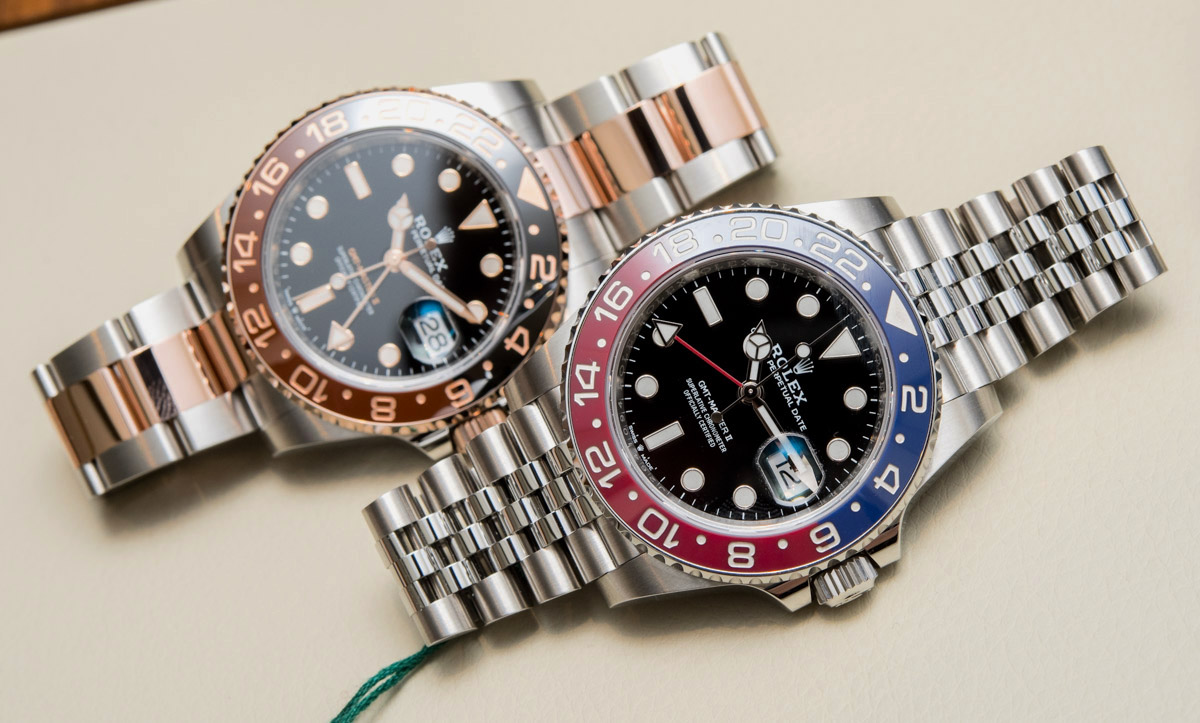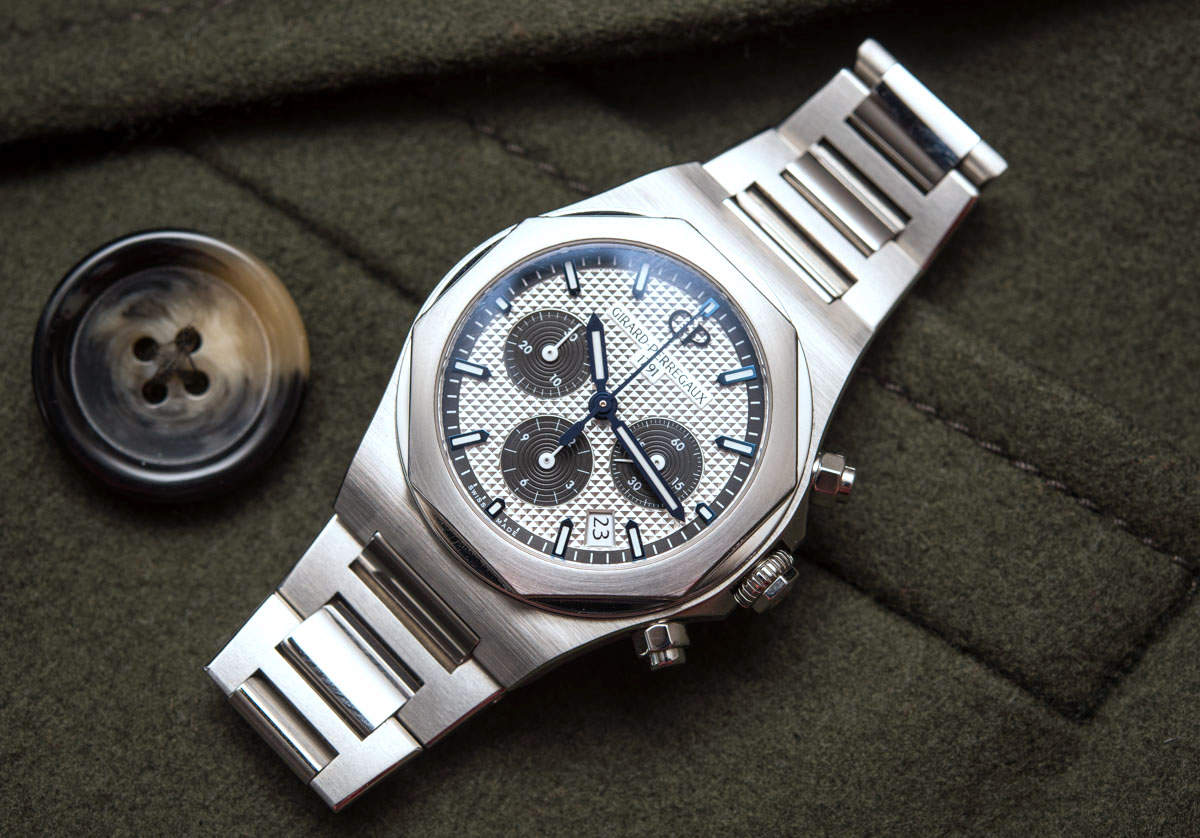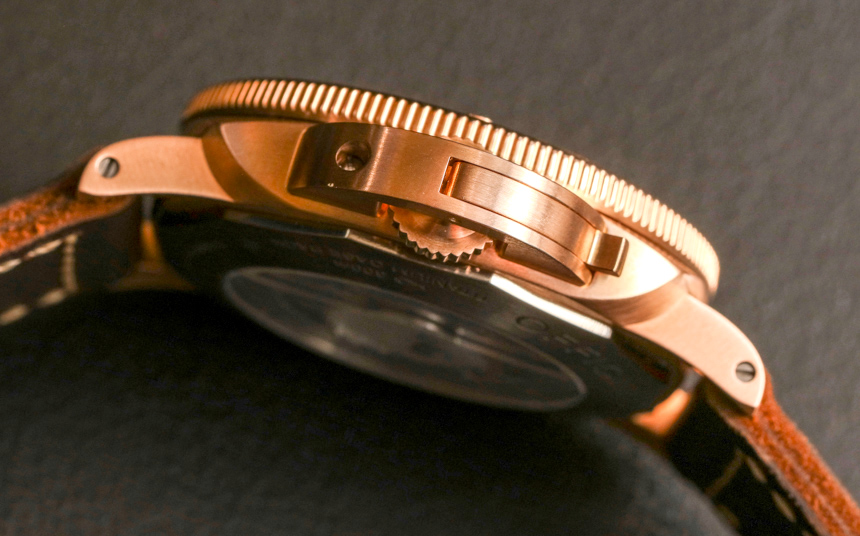
As a watch consumer, I have become increasingly concerned about the state of “free market pricing” that I’ve observed all around me. Over the last few days alone, I have had at least five conversations with people who expressed to me something between awe and frustration at seeing a listed price for a popular timepiece way above the MSRP (in some instances double the retail price). None of these people seemed particularly enthused by this nor is there much expressed enthusiasm about buying these otherwise desirable watches at this price point. This isn’t the first time I have written about this issue, and this article is meant as a direct appeal to fellow consumers about what I feel is the wisest thing to do about it — just don’t buy watches for above the retail price.

For those of you interested in the background of this issue and why particular modern (including totally brand new) watches are being listed at above retail price, please read my article on watch speculators and scalpers
. Here, I tackle the complicated issue of explaining, from a watch industry market perspective, why all of this is happening. The solution to the problem of overpriced new watches isn’t going to come from the industry, however. Even though frustrated customers who can’t buy a new Rolex isn’t a good thing for Rolex, it is hard for them not to secretly enjoy their ever-strong “it girl” status. Plus, Rolex does have a good point in its defense when posed with the question, “Why can’t you just make more steel watches?”
Rolex could, but they don’t. First of all, in order for Rolex, or any company, to do that, the decision would need to be made a few years in advance. Watch productions are expensive and don’t happen on a whim. Rolex, like other watches brands, is keen to minimize risk and often funds the production of watches based on retailers’ orders. Never mind that a company like Rolex can more or less dictate what retailers buy, they do need to predict the new years of production in advance. Rolex argues that if they make the internal decision to ramp up production of steel watches now, who is to say that the current trend of high demand for a few all-steel models will remain strong? Remember, if Rolex over-produces steel watches and the market has too many of them, then the street price will go down. Rolex can authentically say that overpriced Rolex watches (those listed at above retail) don’t make the brand any more money because their profit ended when they sold the watch at a wholesale cost to the retailer. What happens to the watch after that does not directly put money into Rolex’s coffers.

Thus, while watch brands like Rolex and Patek Philippe aren’t to blame for the steel watch scarcity, they also aren’t doing too much to end it. Until relatively recently, this surge in demand was isolated to a few key watch models. Lately, I’ve started to see it spread. And it isn’t spreading in my opinion because of market demand. Rather, I think the practice of pricing watch at over retail price is starting to become a result of dealer pricing speculation. In other words, people selling watches are all of a sudden pretending that they are in high demand and charging more than retail. How is this possible? It is possible because there is a perception that luxury watch consumers are now accustomed to the practice of over-pricing. No one actually controls watch prices. Other than MSRP values there is no bible to set watch prices. This makes it possible for someone selling a watch to select any price they wish. As long as they put that price online and maintain a still voice when speaking to a potential buyer, they might get away with a form of fraud.
This is not capitalism at its finest. Fellow watch enthusiasts have pointed out to me that so long as people are willing to pay particular prices, then dealers will get away with charging those prices. So, in a sense, it is the fault of the consumer for allowing the market to get away with deceptive pricing practices. Having a rule to avoid ever spending more than retail on a watch would technically fix the issue because consumers simply wouldn’t violate the rule. Is that a good rule? Let’s examine the implications of following it.

A good number of the watches priced at above retail are desirable watches. So, if you have to spend more but you really want the watch, it is OK, right? Not necessarily. I begin with the premise that there are plenty of really good watches out there that can be purchased at or below retail price (such as the watch you see above). In other words, there is no actual market void for high-quality timepieces at retail prices. Sure, those might not be a particular Rolex or other brand configuration, but if you want a very nice timepiece that will make you look sharp and serve you well for years, then options aplenty exist, my friends. My point is that there is no actual market scarcity that might theoretically justify overspending for a consumer. If you want a nice timepiece of the sort that is not overpriced, there is currently no shortage of options.
So, if you avoid over-spending, you still get an excellent assortment of watches available to you, but are you missing out on a good “investment?” Now comes the tricky concept at which the heart of my argument lies. The people who truly feel comfortable spending more money than retail price on a wrist watch are mostly those who simply want to resell it themselves (at an even greater price). I would have a lot more sympathy with the practice of spending more than retail price on watches if it were being done by people who wish to wear and enjoy them for years. This isn’t what is mostly happening. For the most part, the practice of overpricing watches is done by people who first purchase them at retail price and, given perceived market desirability, re-sell the watch at more than retail price. Remember, in many instances, if they sell the watch at retail price, they don’t make any money. Thus, these forms of watch speculators must sell at above retail if they are going to make money. I envision these folks as stock market types feeling global economy malaise and eager to find some type of alternative investment vehicle. More than a few of them realized that guys with more than enough disposable income like watches and decided that these are the next best things to trade. Who wins? Not people who actually wear and collect watches, for the most part.

I hope I have explained that the winners in the practice of overpricing are not watch consumers, watch brands, or traditional watch retailers. Rather, the seediest underbelly of the watch retail world, along with non-enthusiast investors, are those leeching off an already expensive hobby. Think about it: Collectors today already have to put up with the fact that traditional timepieces are expensive. For the most part, they have to be because they are produced in such small quantities. You can’t expect a retail price value like a mechanical watch in 1970 because mechanical watches aren’t produced in nearly the volume they were in the 1970s. Luxury pricing for good timepieces is here to stay. Do you, as a consumer, want to put up with even higher costs for the same items? I didn’t think so.
If you want a good watch right now, you don’t need to spend more money than retail to get one. No major city or Internet browsing session is devoid of fine watch retail offers at or below retail prices. I simply reject the notion that “must-have” watches are important for any other reason than the fact that they have the name of a hot brand that trendy types can’t help but be associated with or that whets the chops of speculators.
As long as actual watch consumers (not just other speculators) purchase new watches at above retail price, dealers will speculate and charge for above retail price. The only way to end the practice is to dry up the market buy not buying them. Purchasing a watch from a dealer at above retail price should always be avoided. If you want to make some peer-to-peer transaction because someone is only willing to give up a watch on their wrist for more than retail, that is a rare (and private) enough situation that it won’t effect the market. For now, my advice is to apply the rule that friends don’t let friends spend more than retail price on a wrist watch.
